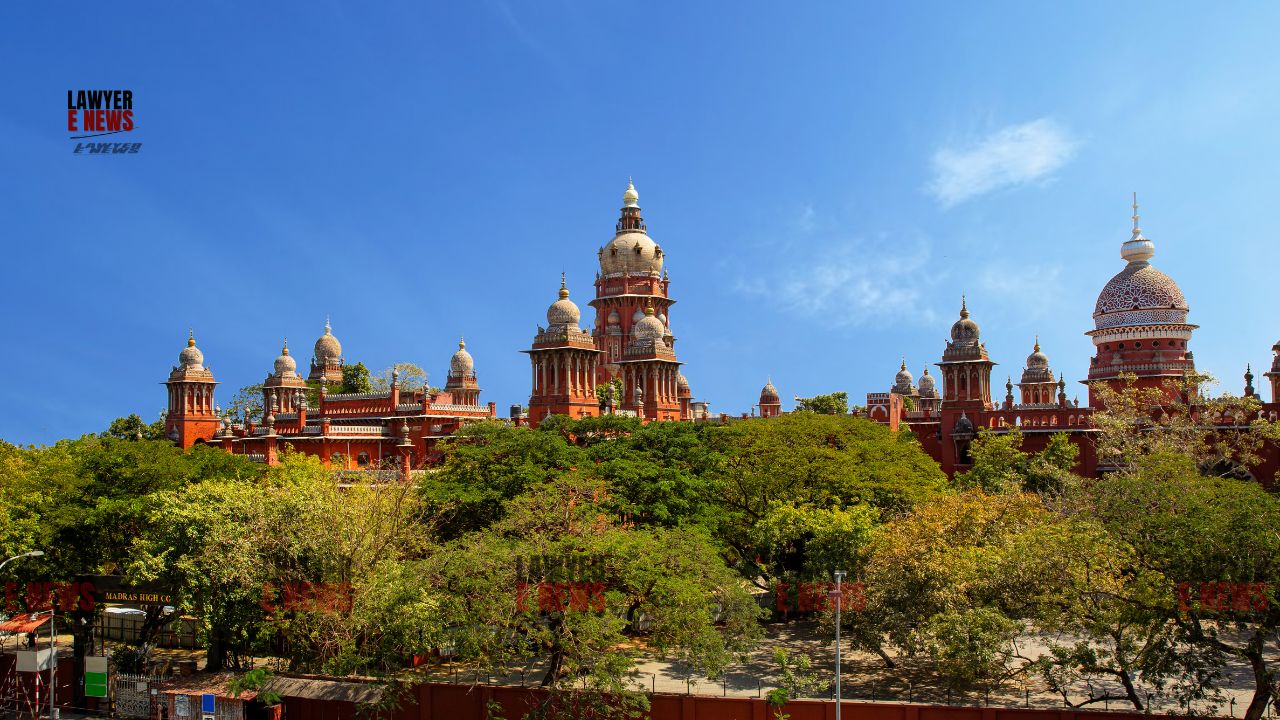-
by Admin
15 February 2026 5:35 AM



The Madras High Court upheld the conviction of Irudhayadasan, a grandfather found guilty of sexually assaulting his 8-year-old granddaughter. The appellant's 10-year rigorous imprisonment sentence, imposed by the Sessions Judge (Fast Track Mahila Court), Kanniyakumari District, was confirmed. The appellant was convicted under Sections 5(m), 5(n), and 6 of the Protection of Children from Sexual Offences (POCSO) Act.
"Victim’s Testimony and Medical Evidence Prove Assault Beyond Doubt," Court Rules
The Court emphasized that the prosecution had established the case beyond reasonable doubt, with the victim's testimony and medical evidence clearly proving the assault. The Court also reaffirmed the presumption of guilt under Section 29 of the POCSO Act, which requires the accused to rebut the charges once foundational facts are established.
The incident occurred on January 2, 2016, when the accused took his granddaughter and her cousins to a beach under the pretext of buying sweets. Leaving the other children behind, the accused sexually assaulted the victim behind a boat. The assault was discovered when the child cried out in pain, attracting nearby individuals who intervened. The victim later informed her family, leading to the registration of a case under the POCSO Act.
The trial court found the accused guilty of aggravated penetrative sexual assault under Sections 5(m) and 5(n) of the POCSO Act, which deals with assaults by relatives and those involving children under the age of 12. He was sentenced to 10 years of rigorous imprisonment and fined ₹50,000.
The appellant contended that there were contradictions in the victim’s statements, medical reports, and witness testimonies. He argued that the prosecution's evidence was inconsistent and that the case only attracted Section 10 (sexual harassment) of the POCSO Act, rather than the more severe Section 6 (aggravated penetrative sexual assault).
However, the Court rejected these arguments, noting that the medical examination confirmed the victim’s hymen was torn, corroborating the penetrative sexual assault. The Court found no material contradictions in the prosecution’s case that would affect the validity of the conviction.
The High Court dismissed the appeal, holding that the trial court had correctly applied the law and that the appellant had failed to rebut the presumption under Section 29 of the POCSO Act. The victim’s testimony, supported by medical evidence, was deemed sufficient to uphold the conviction. The 10-year imprisonment sentence for each count was confirmed, with the sentences to run concurrently.
This judgment reinforces the application of the POCSO Act in cases of sexual violence against minors, emphasizing the importance of medical evidence and the presumption of guilt under the law. The Court’s decision upholds the rights of child victims and stresses the responsibility of courts to protect vulnerable individuals from sexual exploitation.
Date of Decision: September 20, 2024.
Irudhayadasan vs. The Inspector of Police
